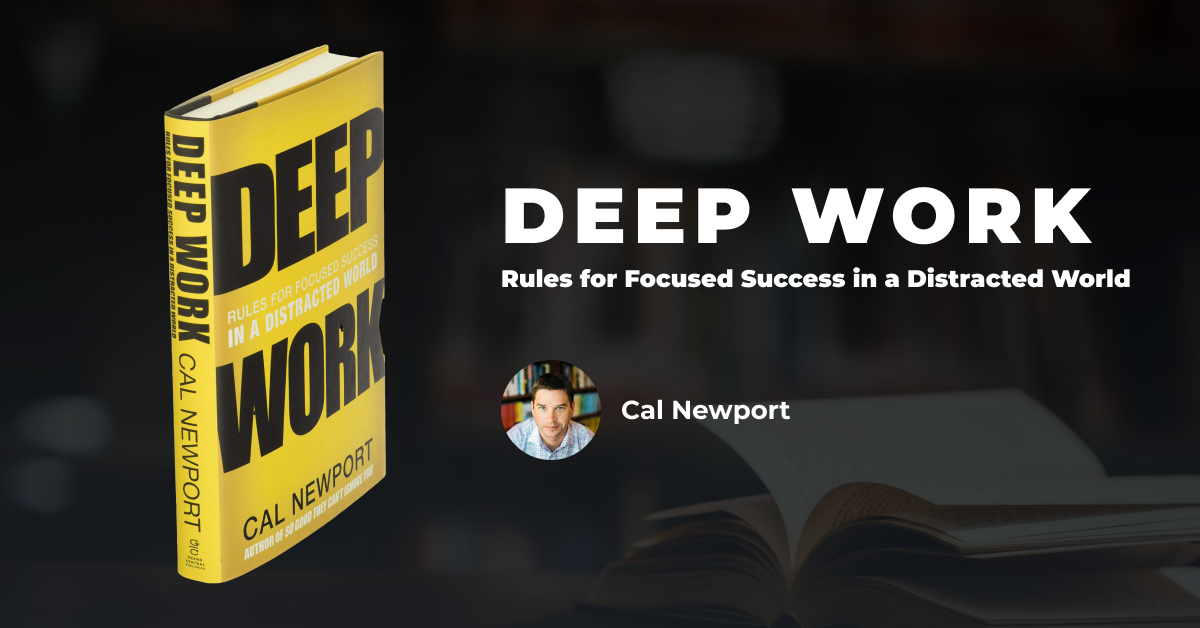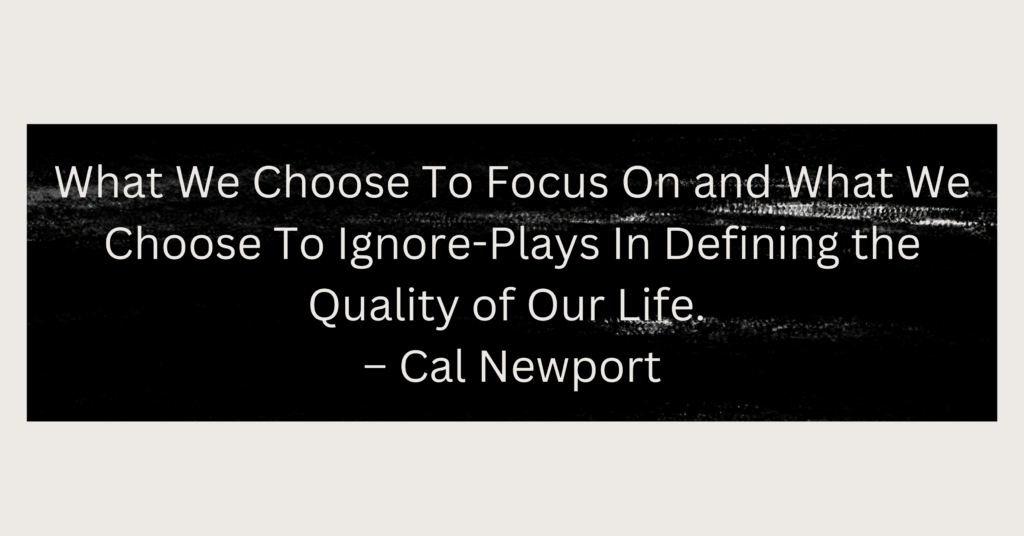Deep Work: Rules for Focused Success in a Distracted World by Cal Newport
I recently read Deep Work by Cal Newport. I am thankful and glad that I read it and it helped reinforce my learnings. With the MAANG (meta, apple, amazon, Netflix and Google) companies around us, it is very difficult to do Deep Work. However, companies like Google, Apple or Amazon could not have been created without Deep Work.
What is Deep Work?
Focused work with no distractions.
Here are some of my notes and learnings from the book by chapter:
Deep Work is meaningful & Valuable
Deep Work is an essential skill to have in today’s economy, and companies whose employees are doing Deep Work will have a competitive edge over others. Deep Work is not just economically lucrative, it is also a life well lived. By going Deep, you can get more rewards. The magnitude of returns is unbounded. You can’t win a Nobel prize without doing Deep Work (Research) – For research, you need to do Deep Work. If you need to learn a skill or if you need to solve a hard problem, you need to go deep, and for this, you need Deep Work.
Work Deeply
People fight desires all day long. The common desires include eating, sleeping and sex. The desires also include taking a break from hard work, checking emails, and social networking sites, surfing the internet, watching tv and listening to music. Our willpower is finite, and it gets depleted as we use it. Regardless of our intentions, unless we are smart about our habits, we will run into the problem of depleting our willpower to resist the temptations for distraction.
One good way to do this is to set up smart routines and rituals. Set up deep work times on your routines. Example: Adam Grant (Author of Give and Take) stacked courses in one semester and researched another semester. Adam Grant remained famously open and accessible (however, not during his Deep Work time). Write the dates and cross off with an X on a sheet of paper is also a good way to keep track of Deep Work. Simple but effective. This is also a visual indicator. Ad Hoc deep work scheduling is not very effective. It is a good idea to schedule work in batches. Sticking to a routine is a great way to do Deep Work. (Including what you wear every day) – It is good to plan the previous night or even plan for the whole week ahead of time. It is good to do weekly previews and plan for the week ahead. Set up a daily morning routine-
What will you do when you get up?
What does your schedule look like?
Would you go for a walk?
Making Grand Gestures is also another way to do Deep Work. Go off to another location for a week in view of Deep Work. It may cost some money, however, it is totally worth it. Sometimes to go deep, you need to go big.
William Shockley, the Noble prize winner for the invention of the transistor, locked himself in a room in Chicago, and this helped him share credit for the invention of the transistor.
Do not work alone. Collaboration leads to innovation. (John Bardeen and Walter Brattain) – Christenson wrote a book – The Four Disciplines of Execution (Focus on the widely important), Act on the Lead Measures, keep a compelling Scoreboard (Physical artefact), #4- Create a cadence of accountability.
Being Lazy also helps, – quote Tim Kreider – I am not busy, I am the laziest ambitious person I know.
Shutdown Ritual
Set up a shutdown ritual and stick to it. Do not look at the phone before going to bed. Do not glance at your email on Saturday morning, and some emails may haunt your thoughts for the rest of the weekend. The author uses Google docs. For storing his task list.
Embrace Boredom
Our brains need to be trained for Deep Work. Instead of getting distracted while focusing on things, it is a good idea to take a break from your focus time. (setup or schedule distraction times) where it is okay to be distracted. If you are waiting for coffee in a line, it is our natural tendency to check the phone. However, not checking your phone or drinking coffee by yourself with no distractions is incredibly valuable. The author also cites an example of Teddy Roosevelt (Former President of the US)- Roosevelt could afford more time off from his schoolwork because of his ability to focus. The author also asks us to do productive meditation. If we are working on a hard problem, it is good to go for a walk and think about the problem. We may end up with great solutions.
Quit Social Media
The author recommends running an experiment and quitting social media for 30 days.
Drain the Shallows
The author also suggests that once we hit the deep work limit every day, we will start experiencing diminishing returns if we try more. He also recommends us to schedule every minute of the day (in blocks of time). Batch similar things and work on them. For a task you take on, it is also a good idea to delegate. How long would it take to train a smart recent college graduate with no specialized training in my field to complete this task? Cal Newport carefully guards his obligations and is very conscious about managing his time.
Cal Newport quotes Bill Gates and his fascination with Deep Work several times in his book. It is easy to be artificially busy. Thanks Cal. This is a great book, and anyone who reads it will clearly understand the need and value of Deep Work. Also, as you have suggested, it will also give people and companies doing Deep Work a competitive advantage in this knowledge economy.





Leave a Reply